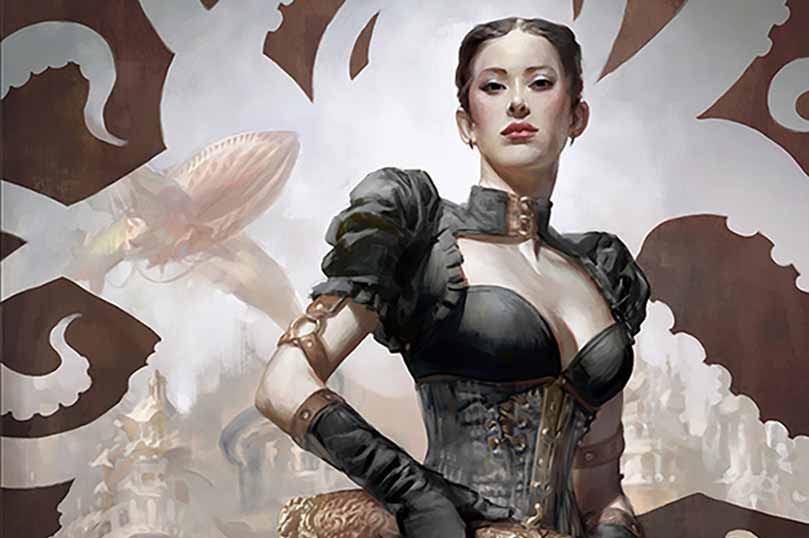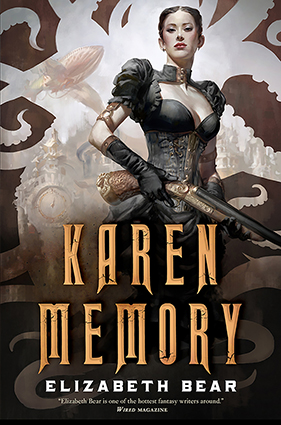opens in a new window opens in a new window
opens in a new window opens in a new window
opens in a new window opens in a new window
opens in a new window opens in a new window
opens in a new window
 Hugo Award-winning author Elizabeth Bear returns with the stunning conclusion to her acclaimed epic fantasy trilogy, the Lotus Kingdoms.
Hugo Award-winning author Elizabeth Bear returns with the stunning conclusion to her acclaimed epic fantasy trilogy, the Lotus Kingdoms.
The Lotus Kingdoms are at war, with four claimants to the sorcerous throne of the Alchemical Emperor, fielding three armies between them. Alliances are made, and broken, many times over—but in the end, only one can sit on the throne. And that one must have not only the power, but the rightful claim.
The Rajni Mrithuri stands as the chief claimant to the Alchemical throne now, but she and her empire remain a prize to be taken unless she gets an heir. She has her allies–her cousin Sayeh, a dragon, a foreign wizard, a fearsome automaton, and the Dead Man–but the throne has the final say. And if it rejects her, the price is death.
Please enjoy this free excerpt of opens in a new windowThe Origin of Storms by Elizabeth Bear, on sale 05/24/22.
1
The queen of a murdered city stood over the cooling body of her enemy and tried to think what to do.
This was not Sayeh Rajni’s land. These were not Sayeh Rajni’s people. There was an army here within the walls and it was not Sayeh Rajni’s army.
Neither did the army without the walls belong to her. And yet here she was, more or less in charge of that land, those people, and both of the armies.
The army inside the walls of Sarathai-tia had been commanded by Anuraja, the ambitious old narcissist whose corpse she was washing with more respect than he had ever accorded to anyone. The army outside owed allegiance to Mrithuri, the young queen he had married against her will, whose city this was. Who now lay unconscious in her bed, protected by an armed guard.
Beyond the windows, dawn was falling, but any texture of the fading light was erased by clouds and curtains of rain. Within, Sayeh’s hands guided a cloth redolent of sandalwood and soap over the body. It was not the first corpse she had washed in her life.
It was by far the most satisfying.
She was already looking forward to the next one.
This is an elegant pickle I’ve gotten myself into. Sayeh stood with a crutch propped into her armpit, taking the strain off her healing leg. She was standing on it, however, and that was another victory. One almost as satisfying as the death of Anuraja.
She’d beaten one enemy. But the other still held her son Drupada hostage, having claimed Drupada as his own heir. Sayeh had improved her position and gathered resources. She was no longer captive herself. She was reliant on the goodwill of Mrithuri, who was now—after a fashion—the Dowager Empress of Sarathai-tia and Sarathai-lae.
Dowager Empress of United Sarath, Sayeh supposed—a thing that had not existed in a long time.
That was to say that Mrithuri was Dowager Empress . . . if Sayeh’s cousin survived her current illness, which had been brought on by the overuse of the poisonous stimulant in the venom of certain magical serpents.
If not . . . well, that left two of the Lotus Kingdoms without a ruler, and a third—Sayeh’s home of Ansh-Sahal—destroyed utterly. And that would inevitably mean a continuation of the war. Not that a young widow was the sort of leader the martial men of Sahal-Sarat would flock to, so there might be a war even if Mrithuri survived.
Meanwhile, somewhere to the north was their kidnapping cousin Himadra. Another war in waiting, Daughter’s piss!
Sayeh kept her face over the bucket of clean water and scent in order to attenuate the reek of Anuraja’s body. The stench of death was no worse than that of the suppurating abscess he had suffered from. At least there was clean water. Anuraja had caused his pet sorceress to clean Sarathai-tia’s fouled cisterns before he died. That was just as well, because once he had died, she’d apported out and left them to their fate.
The water might be clean, but the rage inside Sayeh still bubbled filthily. And being a rajni, she could not show its fury.
Her rage had to be a thing of silence and smiles and coquettish glances, because she was dependent upon those around her. She was dependent on her hold over Anuraja’s soldiers—and that power relied on them seeing her as a gracious and divinely chosen authority. Between that and their duty to Mrithuri as Anuraja’s widow . . . it might be about enough to keep them from going rogue and pillaging the city they’d been left in occupation of, as long as authority were established quickly.
Which meant two things. One, they were going to have to find some way to pay those soldiers. And two, they needed Mrithuri to wake up.
Soon.
The Dead Man waited beside his rajni’s bed, trying to keep out of the way of the physicians. There were only three of them, and they worked well together—but in his current state of anxiety, helplessness, and dismay, three seemed like a roomful.
There was Ata Akhimah, the strong-limbed Wizard from Aezin, whose glowing dark complexion stood out by contrast to the white of her sleeveless blouse. There was Tsering-la, Sayeh Rajni’s Rasan Wizard, a small man with amber skin and epicanthic folds. He wore a black six-petaled coat that hung as though he had lost weight since it was tailored. And there was Hnarisha, Mrithuri Rajni’s secretary, whose holistic skills were not, he insisted, Wizardry—but something else entirely.
The Dead Man heard the plainchant of the nuns cloistered within the palace walls, full of echoes as if it came from far away. Mrithuri had traded them something for help and intervention. He did not know what she had traded. He was, he realized, desperately afraid that she had chosen to sacrifice her life. If she had promised herself to the demon or angel she considered her goddess in return for her people’s salvation . . . what then could keep her with him?
The Dead Man steadied himself and told the knots in his stomach that Wizards knew a lot about healing, and these Wizards did not seem too terribly concerned.
He was concerned enough for all of them. And it was not his place to show that concern.
His place was to appear stoic and impassive. His place was to keep them all safe. From outside threats, since he could not defend Mrithuri from the treachery of her own body. His veil was a blessing: it hid his expression and concealed his emotions. Even when he made the mistake of looking over at the rajni while her people ministered to her.
She looked so frail.
He knew, intimately, how bony her arms were and how thin her face had become. Somehow, though, the projecting cheekbones and the architecture of her hipbones seemed more pathetic without the fidgety energy that usually animated her. Now she merely seemed emaciated.
Shiny dots of scar marked the skin below her collarbones, over the stark ribs, along the inside of her arms. It seemed newly evident how many of them were fresh and pink, or capped with a pinprick of scab. She had not been healing well.
Against the wall, Mrithuri’s enormous bhaluukutta, Syama, lay with her bearlike head on her doglike paws and moaned her distress and helplessness. The Dead Man knew how she felt.
He watched without watching as the woman who was secretly his lover— even more secretly, his wife—was ministered to. As she was cleaned and dressed and fed milky honey tea by spoonfuls trickled into her mouth. As Hnarisha laid his hands upon her brow and breastbone and bathed her in what healing energies he could command.
The Dead Man watched, and he tried not to think of another ruler lying nearby, body just as slack but soon to be stiffening. Of that other ruler, also being bathed, being dressed in his personal colors of orange and blue. That king was being dressed for a pyre: the local heathen replacement for a decent burial. The Dead Man watched and tried not to think how close Mrithuri might be to that other, more final purification.
He was a soldier. His place was to deal with whatever problem lay before his hand and not to worry about the larger picture.
It is what it is. The refrain of those who fight and die on another’s behalf, at another’s command.
It is what it is.
But he was not just a soldier in this place, at this time. Not just a retainer. He was a leader, a tactician. And, with Mrithuri incapacitated—temporarily, of course it could only be temporarily—and her general exiled for the time being beyond the city walls, it was his place to worry. About her health, about the precarious politics. About the enemy army in possession of the palace, the city, and the land outside.
The Dead Man might rely on his veil to hide his expression, but it could not hide his startled jump and the flicker of his hand toward his pistol when the door slid aside. Embarrassment heated his belly. No matter how old you were, it seemed like there was always something to make you feel callow and unprepared.
Currently, that thing wore the gentle demeanor of the Lady Golbahar. She stood framed in the portal, one hand still resting on the edge of the door she had slid aside. She had noticed his agitation: that was evident from the smile lines beside her hazel eyes and the tilt of her head within her veil.
“Are you free?” she asked him. “We have some things to talk about.”
“I cannot leave the rajni,” he said.
I propose that there is very little that Syama and all these Wizards cannot protect her from. Except the future.”
“I’m not a Wizard,” Hnarisha said over his shoulder. “Go, Dead Man. We’ll keep her safe.”
With reluctance, the Dead Man followed Golbahar, managing to avoid a backward glance only because he was already so flustered by how he had revealed himself. It wasn’t much, true—but the inculcation to stoicism ran deep.
Golbahar did not bring him far. Merely down the hall, and into the company of most of the people the Dead Man would have sought out for himself if he had been thinking clearly. There was Druja, the caravan master and . . . the polite term would probably be information broker . . . his quiet brother Prasana, the assassin, who wore servant’s garb. There was Yavashuri, Mrithuri’s maid of honor. The Dead Man thought she was also the spymaster to whom Druja and others reported. Nearby stood Ritu, the endlessly useful matriarch of the tribe of martial acrobats that Druja had accidentally collected along the way.
Sayeh Rajni stood braced on a crutch, a motley-feathered phoenix on her shoulder. Her retainers stood with her. Vidhya, the guard captain, was still disguised as a civilian in the foppish clothes of a courtier. Nazia, Tseringla’s apprentice, wore short hair that stood out around her head like a halo of petals, like the rays of the Lion Sun of Messaline. The elderly poetess Ümmühan—a woman of his homeland, her face disconcertingly bare— seemed to have the straightest spine of anyone in the room.
The undead Godmade Nizhvashiti stood against the wall between the windows, a motionless dark-skinned scarecrow in faded dark robes, easy to mistake for some article of furniture. A coatrack, perhaps.
To complete the set: the Dead Man and Golbahar.
The Dead Man paused inside the door. “Am I called before the tribunal?”
“Indeed you are not,” Yavashuri said, with the air of one conducting matters. “Well, I think that’s everyone. Shall we have seats?”
They dispersed themselves. The floor was heaped with rugs, and the rugs were scattered with bolsters and cushions. Some were soft; some were stuffed with aromatic sawdust. The Dead Man settled on one that exhaled rosewood when his bottom made contact.
Sayeh levered herself down with her crutch, balancing the great bird on her shoulder. The tendons in her forearms striated, but she gave no appearance of distress.
The Dead Man said, “This looks like a council of war.”
Vidhya and Druja exchanged glances. Now, there was an interesting alliance, the Dead Man thought. “Maybe a council to avoid war,” Vidhya drawled, when no one interceded. “We need options to present to Mrithuri when she awakes.”
No one said if she awakes. The Dead Man felt silently grateful that he was not the only superstitious one. “Who is Anuraja’s general?”
He looked at Vidhya as he asked, but it was Sayeh who answered. “His lieutenant commander’s name is Zirha. I haven’t met him. I think Anuraja arranged on purpose to keep us separated.” She hitched her scarf up her shoulder when it slithered down. “Anuraja didn’t seem to rely on generals much. I’ll say this one thing for the filthy bastard: he led from the front.”
Yavashuri rocked on her cushion as if trying to settle her old bones into place. The Dead Man rolled his eyes at himself even as he thought it: she couldn’t be much older than he was.
“I’m not reassured by Zirha’s reputation in that case,” she said. “Would you say he is a weak leader?”
Ümmühan cleared her throat and looked at Nazia, the old encouraging the young. Nazia looked at her hands but spoke. “I would not say he is a strong one.”
“Ysmat’s beads,” the Dead Man muttered. “Just what we need.”
Sayeh snorted. “A strong leader could be worse, or better, depending on his ambition.”
Yavashuri said, “It seems like we’ve all independently come to the same conclusion: that our most immediate problem is the unhelmed army in our midst.”
“Most immediate,” said Nizhvashiti. “But not most severe. That would be—” It groped for words of sufficient enormity, which was not a failing the Dead Man associated with the Godmade.
He said, “The predatory necromancers and whomever they serve?”
Nizhvashiti nodded, expressionless. The Dead Man was not sure if its lack of affect was due to mummification, or due to feeling his offering was inadequate to the gravity of the circumstances and being too polite to say so.
The Dead Man didn’t mind, if so. He held that dragons, Wizards, necromancers, and monstrous, mysterious forces capable of cracking the lid on a quiescent volcano should all have been beyond his sphere of responsibility. He was a bodyguard, a mercenary.
It was too bad destiny didn’t seem to agree with him.
“We can’t even disband the Laeish army,” Vidhya said, retaining his focus. “They’d just pillage their way back where they came from, and everybody along the way is now Mrithuri Rajni’s subject. We need to organize and use them.” He looked at Sayeh. “We need to convince them it’s in their best interests to work with Mrithuri’s army rather than squabbling over the pickings.”
Golbahar had folded herself into a tidy bundle of limbs. “Once we get them back to Sarathai-lae, we don’t need to keep most of them on the payroll, do we? We can send them back to their farms and hang on to the professionals.”
“Dire prophecies,” the Dead Man reminded. “Terrible things on the wind; the dead walk. We might need a good-sized army. And there’s still Himadra to contend with.”
Sayeh straightened. “Yes, I at least have every intention of dealing with him, since he’s still holding my son. But our most immediate concern is finding a way to pay the Laeish army.”
Ümmühan said, “Sayeh Rajni is correct. And we must stop referring to them as Anuraja’s army. They are Mrithuri’s army now. The goal must be to keep them that way and solidify her position as their leader.”
“So pay them,” Druja said.
Ümmühan nodded. “And get her in front of them to give some kind of speech.”
Surreptitiously, the Dead Man made the sign of the pen. How they might expect to get Mrithuri on her feet and channeling her charisma into a political talk—without access to her snakes and their stimulant venom—he did not know.
Yavashuri shook her head. “Somewhere among Anu . . . among the Laeish’s things, the rajni’s serpents must be hidden. He used them—”
“It’s not safe,” the Dead Man said, realizing too late how furious he sounded.
Yavashuri held out her palm. “Don’t worry. I’m on your side.”
Nazia had settled in a corner of the room. She had not spoken except the once, and did not speak now, but the Dead Man watched as her eyes moved from face to face, alertly observing. He wondered what she thought.
Yavashuri shrugged. “Mrithuri is already so unwell because of her overuse.”
The Dead Man said, “Where is the money going to come from?”
“There’s not enough in the coffers for long,” said Yavashuri. “Perhaps I should not reveal that, but—”
Sayeh waved a hand before her face. “Our fates are linked now.”
Guang Bao reached over to preen Sayeh’s hair. She made a face of distaste that seemed inconsistent with her affection for the bird and with what the Dead Man knew of the bond between daughters of the Alchemical Emperor’s line and their familiars.
Ümmühan apparently noticed too. “Is something wrong, Sayeh Rajni?”
“I’m not ungrateful to the austringers,” Sayeh said, stroking Guang Bao with a fingertip. He fluffed in pleasure, showing off the black and white bearded vulture feathers spliced to his own damaged ones. “He flies nearly as well as he ever did.”
“But?” Ümmühan prompted
“But he does smell like rotten bones now.” Sayeh pinched her nose theatrically. “Yavashuri, I hear you. There’s not enough in the coffers. And we can’t exactly pry the diamonds from a throne that blasts those who disrespect it with death.”
The Dead Man, who did not yet know Sayeh Rajni well, thought, Here is an effortless leader.
The thoughtful silence was broken by a scraping sound. The Dead Man did not again disgrace himself by jumping half off his cushion because someone had scratched on the door.
“Come,” Yavashuri said, and then looked apologetically at Sayeh. “My profound apologies, Your Abundance.”
“It is not,” Sayeh said dryly, “my house.”
Hnarisha paused beside the open door. “The rajni is awake,” he said.
Sayeh levered herself to her feet with Vidhya’s assistance. Nazia handed her her crutch; she leaned against it. “Good. Then we can ask her where the money can come from.”
Sayeh knew Hnarisha did not find her humorous. He wouldn’t outright scold royalty, but that wouldn’t stop him from basting her with dubious glances.
“I know,” she soothed, moving toward him. Her leg ached, but she needed to use it, to build the muscle again. “She needs time to recover. But she needs to be alive and free to have that time, so perhaps a little more discomfort now and a longer life to recover in, hm?”
The glance didn’t get any less doubtful, but Hnarisha did step out of the doorway. “Not everybody at once,” he said.
Guang Bao, always alert to Sayeh’s emotions, half-spread his wings to balance on her shoulder, effectively clearing the area around her.
Sometimes it was acceptable to take advantage of one’s rank, Sayeh decided, and flared past Hnarisha while the others were still sorting themselves out. It was a creditable sweep for somebody still limping on a crutch. She crossed the hall and let herself into Mrithuri’s chambers without scratching or otherwise announcing her presence first.
She moved through the antechambers and did pause at the door to the bedroom. Tsering-la must have left. Ata Akhimah was directing some member of the palace staff toward a covered chamber pot, which was whisked away.
The curtains of Mrithuri’s bed were drawn back. She lay among clean covers. Soiled ones were piled in the corner, freshly stripped.
Curls of hair still plastered the Dowager’s unlined forehead. Her complexion was greenish and her eyes sunk among bruises. Her collarbones had edges like cut glass.
Sayeh stumped to the bedside and—crutch for a prop—lowered herself among the bolsters and cushions on the floor. She was getting the hang of this crutch thing.
The smell of a sickroom was fading beneath sandalwood and attar of roses.
Sayeh looked into too-bright eyes and said, “It’s good to have you back.”
“Oh, the indignities of illness,” Mrithuri whispered. “The jokes about privy councilors write themselves, don’t they?”
“It’s a good thing you’re still too sick to spank.”
“I’d like to see you try.” Mrithuri’s faint smile failed. “You took a terrible risk.”
Sayeh nodded. “I did. And we’re not clear of the field of battle yet, Dowager Empress.”
“Please.” The sick woman swallowed. “Don’t call me that.”
Sayeh was aware of Ata Akhimah moving around the room behind her. Of Syama beside the wall, head down but not sleeping. Listening, guarding. The chambermaid returned and carted off the soiled blankets and rugs. The miasma of illness lifted.
“It is who you must be,” Sayeh said, as gently as she could manage. She felt real sympathy for this child . . . well, not a child, but so young to be a ruler on her own. She had been through a great deal, and there was doubtless more to come. “There is still an army in your city, and they must be your army if we are to survive and remain free.”
Mrithuri’s expression pinched in displeasure. “You think calling me Empress is going to make a difference to those men?”
“If we do it often enough and loudly enough, it will, to some of them.” Sayeh smiled. “People want to believe in things. And one way to make them believe is to treat the thing as fact, whether it is or not. Ümmühan taught me that one.”
“Fine.” Mrithuri waved her hand, paling visibly from that small effort. “I’ve been overcome with my grief at being so swiftly widowed. I’ll recover fast. What do we do next?”
“Get the Laeish to let your people come back from exile. Tell them that you will be bringing them home very soon. Go take control of Sarathai-lae and its coffers.”
“Figure out how to pay them until that happens.”
Sayeh nodded. Mrithuri was sharp.
“Has there been any looting yet?”
“Not much,” Sayeh said, honestly. “So far, their officers, such as they are, are keeping the men in check. I think that will last until the officers start to wonder.”
“So. Half a day.” Mrithuri sighed. “What do we do when we get to Sarathai-lae?”
“Anuraja was holding Himadra’s brothers as fosterlings, you know.”
“Yes, I know.” Mrithuri’s eyes widened as she realized what Sayeh meant. “Oh. Oh! An exchange of hostages? A bargaining chip for a peace treaty?”
Sayeh smiled. “Can you get out of bed to end a war?”
Copyright © Elizabeth Bear 2022
Pre-order The Origin of Storms Here:
opens in a new window opens in a new window
opens in a new window opens in a new window
opens in a new window opens in a new window
opens in a new window opens in a new window
opens in a new window
 opens in a new windowSandymancer by David Edison
opens in a new windowSandymancer by David Edison by Brian Herbert & Kevin J. Anderson
by Brian Herbert & Kevin J. Anderson opens in a new windowThe Starless Crown by James Rollins
opens in a new windowThe Starless Crown by James Rollins opens in a new windowShe Who Became the Sun by Shelley Parker-Chan
opens in a new windowShe Who Became the Sun by Shelley Parker-Chan opens in a new windowThe Lotus Kingdoms Trilogy by Elizabeth Bear
opens in a new windowThe Lotus Kingdoms Trilogy by Elizabeth Bear


 The Magic of Recluce
The Magic of Recluce The Stone in the Skull
The Stone in the Skull The Collapsing Empire
The Collapsing Empire Lock In
Lock In Off Armageddon Reed
Off Armageddon Reed The Omen Machine
The Omen Machine Earth Unaware
Earth Unaware


 A Chorus of Dragons series
A Chorus of Dragons series The Serpent Gates duology
The Serpent Gates duology The Lotus Kingdoms trilogy
The Lotus Kingdoms trilogy

 The Mystic Trilogy
The Mystic Trilogy


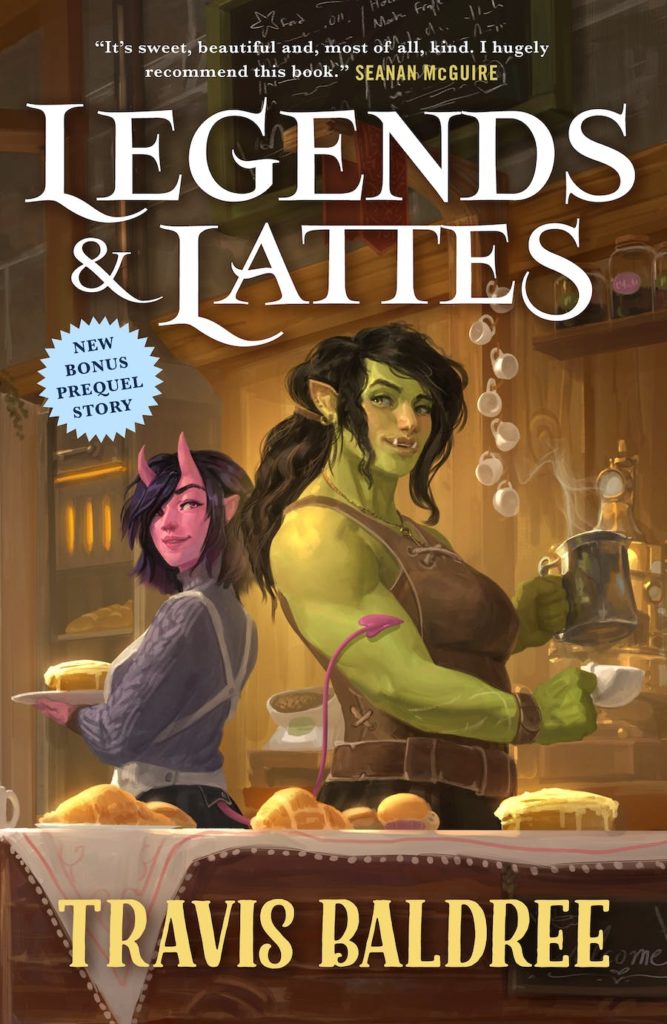

 The Atlas Six
The Atlas Six
 Last Exit
Last Exit The Discord of Gods
The Discord of Gods The Origin of Storms
The Origin of Storms
 A Strange and Stubborn Endurance
A Strange and Stubborn Endurance The Book Eaters
The Book Eaters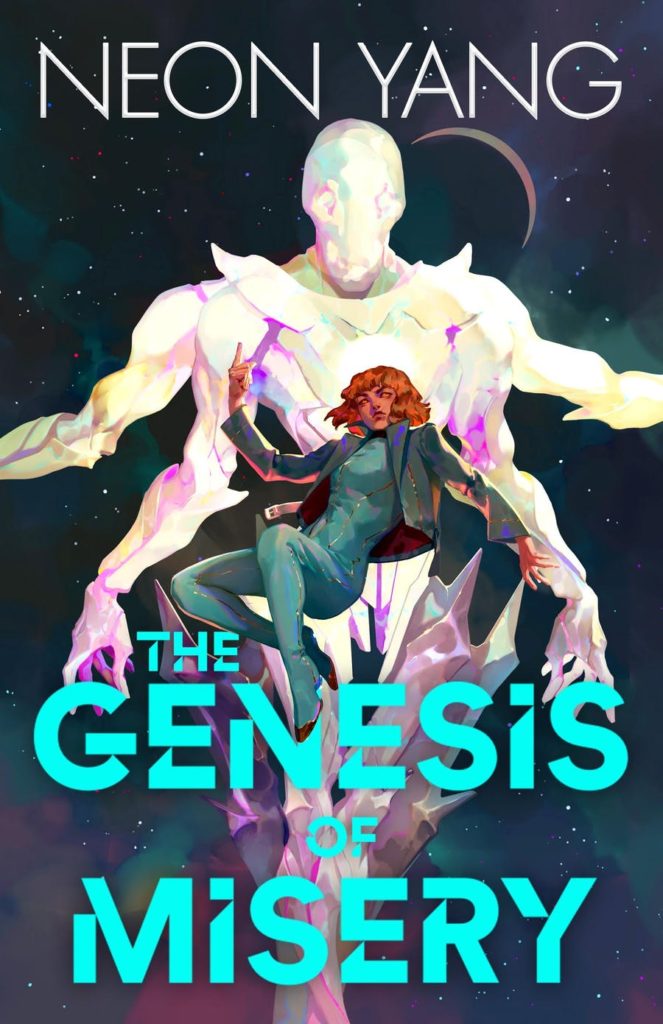





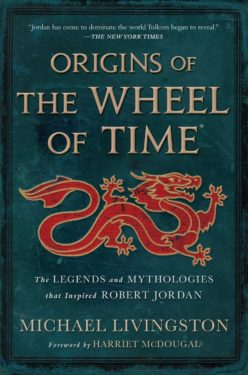 Origins of The Wheel of Time
Origins of The Wheel of Time





 The Grief of Stones
The Grief of Stones In the Shadow of Lightning
In the Shadow of Lightning Daughter of Redwinter
Daughter of Redwinter Sands of Dune
Sands of Dune Flying the Coop
Flying the Coop The Albion Initiative
The Albion Initiative The Memory in the Blood
The Memory in the Blood Mythago Woods
Mythago Woods Just Like Home
Just Like Home Three Miles Down
Three Miles Down The Eye of Scales
The Eye of Scales Full House
Full House Councilor
Councilor
 Dance with the Devil
Dance with the Devil





 Hugo Award-winning author Elizabeth Bear returns with the stunning conclusion to her acclaimed epic fantasy trilogy, the Lotus Kingdoms.
Hugo Award-winning author Elizabeth Bear returns with the stunning conclusion to her acclaimed epic fantasy trilogy, the Lotus Kingdoms.
 The Kaiju Preservation Society
The Kaiju Preservation Society Worlds of Exile and Illusion
Worlds of Exile and Illusion Three Kings
Three Kings The Bone Orchard
The Bone Orchard Destiny of the Dead
Destiny of the Dead Sweep of Stars
Sweep of Stars Our Lady of Mysterious Ailments
Our Lady of Mysterious Ailments Aspects
Aspects Shadow Fallen
Shadow Fallen Flint and Mirror
Flint and Mirror Nettle & Bone
Nettle & Bone Up Against It
Up Against It Book of Night
Book of Night

